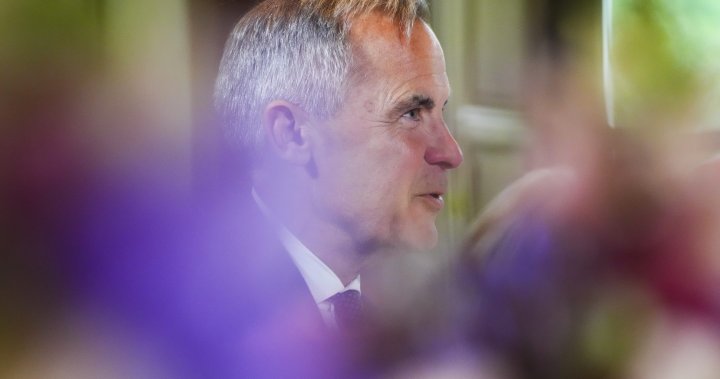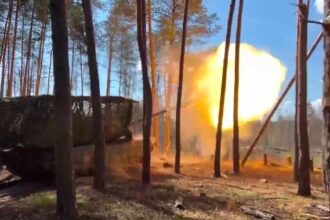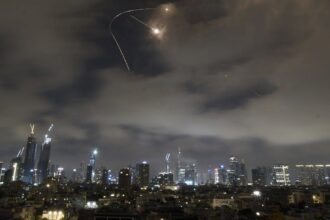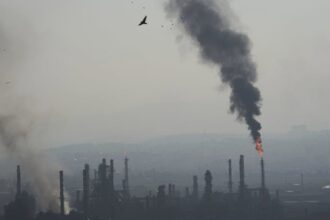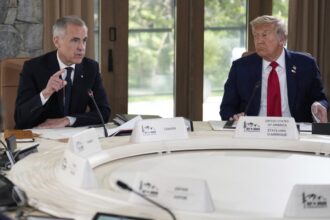In a revealing moment amid escalating Middle East tensions, former Bank of Canada governor Mark Carney has characterized Iran’s recent signals for a potential ceasefire with Israel as a pivotal diplomatic opening that should not be squandered. Speaking during an exclusive interview at the NATO Summit in Washington, Carney emphasized that this unexpected development could present a rare opportunity to defuse the powder keg that the Gaza conflict has become.
“What we’re seeing from Iran represents a critical juncture that deserves careful diplomatic engagement,” Carney told CO24 News during our exclusive coverage of the summit. “After months of proxy warfare and devastating humanitarian consequences, any willingness to step back from further escalation should be treated as a serious diplomatic channel.”
Carney, who has transitioned from his role as a central banking authority to a prominent voice on international affairs, offered a nuanced perspective on the geopolitical chess game unfolding between Iran and Israel. His comments come as Iranian officials have reportedly communicated through intermediaries that they seek to avoid direct military confrontation with Israel following months of tension that have threatened to engulf the entire region.
The financial implications of continued conflict remain substantial, according to analysis from international observers. “The economic toll of this prolonged crisis extends far beyond the immediate conflict zone,” Carney noted, drawing on his extensive experience in global financial systems. “We’re witnessing disruptions to shipping routes, energy markets, and regional investment that could take decades to recover from.”
The NATO Summit, which has primarily focused on Ukraine’s defensive posture against Russian aggression, has nonetheless provided a backdrop for these parallel Middle East discussions. Western leaders have been working behind the scenes to prevent further escalation while addressing the humanitarian catastrophe in Gaza, where civilian casualties continue to mount.
Carney’s remarks come at a time when Canadian foreign policy finds itself increasingly aligned with broader Western diplomatic efforts to contain multiple global crises simultaneously. The Trudeau government has maintained that a two-state solution remains the only viable path to lasting peace, though concrete steps toward that goal have remained elusive.
“The window for meaningful de-escalation exists, but it won’t remain open indefinitely,” warned Carney, who has previously served as Governor of the Bank of England. “The international community needs to move quickly to solidify any ceasefire opportunities before hardliners on both sides can undermine them.”
Humanitarian organizations operating in Gaza have reported catastrophic conditions for civilians, with critical infrastructure destroyed and essential services collapsed. Any ceasefire would potentially allow for increased aid deliveries and begin addressing the monumental rebuilding task that lies ahead.
The economic dimension of this conflict extends to global markets as well, with energy prices experiencing volatility with each new development. Analysts have noted that regional stability in the Middle East remains a prerequisite for economic recovery across multiple sectors dependent on stable shipping lanes and predictable energy supplies.
As diplomatic channels quietly explore the parameters of a potential ceasefire, the fundamental question remains: can momentary diplomatic openings translate into sustainable peace processes when decades of entrenched positions have resisted previous attempts at resolution?

